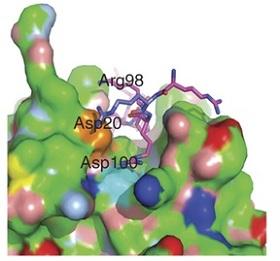Using AI to control energy for indoor agriculture
30 September 2024
Published online 29 April 2013

The protein Shc stops extracellular signal-regulated kinases (ERK) from moving from the cytoplasm of a cell to the nucleus, restricting its ability to initiate the transcription of genes that could potentially trigger uncontrolled cell division, according to a study published in Nature Structural and Molecular Biology1.
A research team with members based in the United Kingdom, the United States and Saudi Arabia, found that in the absence of growth factors, direct interaction between Shc and ERK down regulates ERK activity and acts as a tumour suppressor.
External growth factors activate epidermal growth factor receptor (EGFR). The activated EGFR binds Shc, releasing ERK, which is then free to resume its normal signalling. By binding ERK, Shc suppresses any abnormal signalling and, the authors say, can act as a tumour suppressor.
The researchers are now searching for small molecules which inhibit the binding of Shc to EGFR, helping maintain the Shc-ERK interaction. Blocking ERK, propose the authors, might be novel way to treat cancer.
doi:10.1038/nmiddleeast.2013.64
Stay connected: